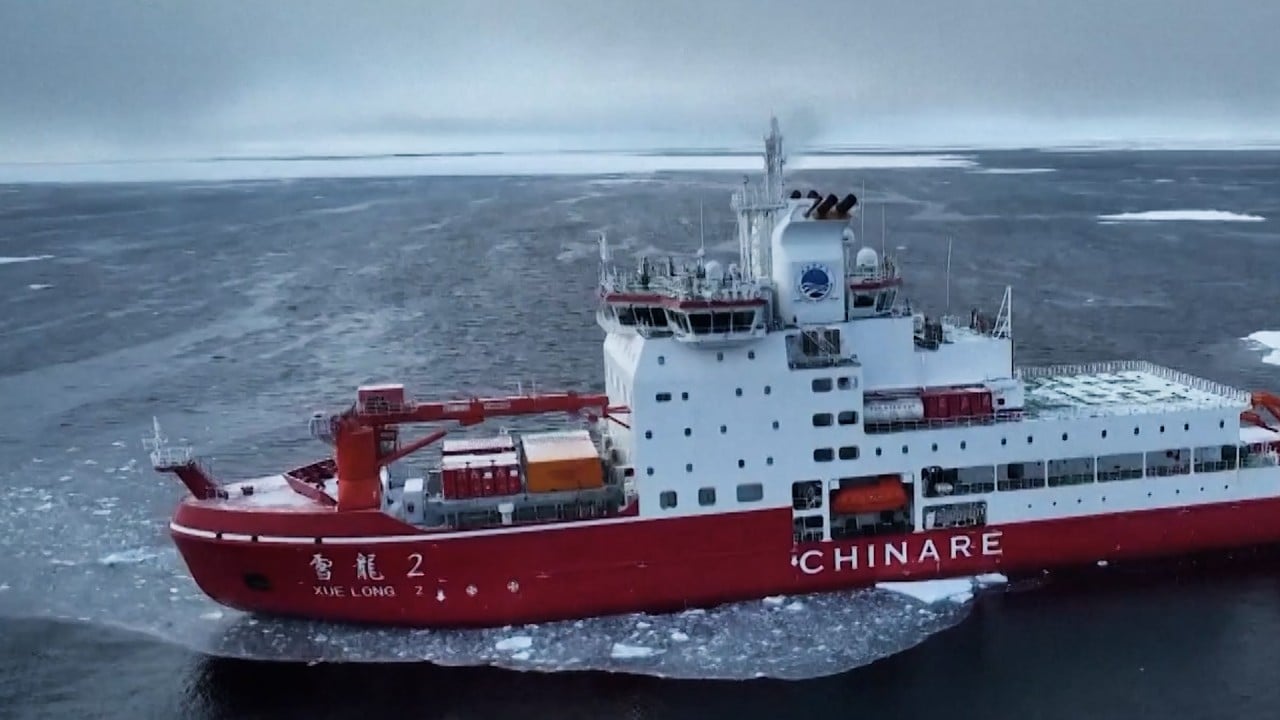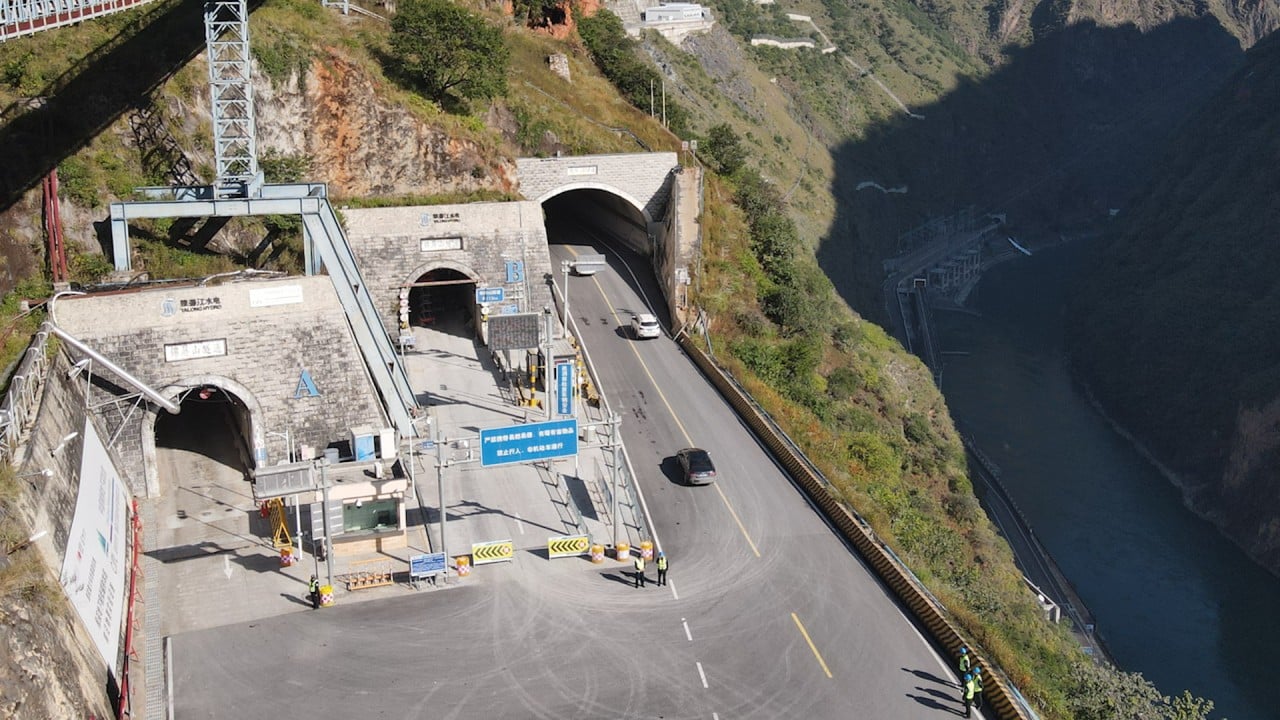
International scientific prize for Chinese researcher highlights efforts to lure scientific talent back home
- Hao Jihua, a geochemistry professor at elite Chinese university after studies in US and France, was awarded FW Clarke Award
- Hao’s research areas, which include nutrient cycling in early Earth, origin of life and habitability of extraterrestrial oceans, are priorities for China
Hao Jihua, a geochemistry professor at the University of Science and Technology of China, has been awarded a prestigious international prize, with his rapid academic rise highlighting China’s efforts to lure bright talents back home.
The prize is awarded by the society – an international organisation based in Washington – each year to an early-career scientist for their outstanding contribution to geochemistry or cosmochemistry.
After spending four years in tenuous postdoctoral employment abroad, Hao returned to China and joined the department of geochemistry and planetary sciences USTC, one of the leading institutes in mainland China, in 2021.
Over the past three years he has been promoted to professor, received substantial funding and his academic work is now internationally recognised and honoured.
Although an isolated case, his career to some extent reflects China’s efforts to lure back and support outstanding overseas talent in a bid to become more self reliant in science and tech
Hao started his undergraduate studies at USTC in Hefei in Anhui province in 2008 before heading to the United States in 2012 where he received his master’s and doctoral degrees from Johns Hopkins University, graduating in 2016.
He then spent nearly three years at the Université Claude Bernard Lyon 1 in France and 15 months at Rutgers University in the US.
It is not an easy life as overseas postdoctoral scholars face pressures such as visa renewal and uncertain prospects. A commentary published in Science journal in 2022 said “such positions are transient, offering little by way of financial stability or certainty for the future”.
Tenure is increasingly difficult to achieve in academia, as the number of positions dwindles. According to a survey conducted by Nature in late 2020, postdoctoral scholars who cannot find a permanent job often end up taking another postdoctoral position.
Wu Jun, an associate professor at the University of Texas Southwestern Medical Centre, said that in the US, a postdoctoral position was temporary; annual contract renewals were not a problem but life was stressful because of the smaller pay cheques.
Postdoctoral positions usually act as a stepping stone between the student experience and full-time work. But according to Wu, to grow into an independent principal investigator some may choose to stay in the position for longer, say four to five years, to publish more articles in top journals.
But not all postdoctoral careers had to last that long. Feng Yu, a recently appointed assistant professor at Shanghai Jiao Tong University who returned from the US this year, had just over six months of postdoctoral training there.
“China’s massive investment in basic science allows postdocs to have a positive view of their future career prospects if they are willing to return to work in China,” said an astronomer in the Nature survey.
An increasing number of young scientists such as Hao and Feng are choosing to look for a job in their home country.
“There is not much difference between China’s research environment and that of Western countries, and the pressure for returnees to apply for grants is relatively lower than abroad,” Feng said.
After returning to China, Hao’s academic career seemed to take off. In 2021, he was selected for the Anhui Province overseas high-level talent programme and the Chinese Academy of Sciences’ young talent programme.
In 2023, he was selected for the Changjiang Scholars Programme, the highest academic award given to an individual in higher education by China’s education ministry. Hao is now in charge of a 4 million yuan (US$555,000) national key research project for the Ministry of Science and Technology.
He was a special researcher when he joined the USTC. Employees were evaluated during their six-year contract and only the top performers gained permanent faculty positions, said a scientist at the institute. In February, just three years later, Hao was promoted to professor.
That is a surprisingly fast ascent, according to Feng. He said that after around three or so years of postdoctoral research abroad it takes about a further five to six years to get on the tenure track and become an associate professor. That is usually shorter if returning to China, but to be promoted to professor in three years is unusual, especially at a top university.
Hao’s rapid rise may have something to do with his areas of research, which include nutrient cycling in the early Earth, the origin of life and the habitability of extraterrestrial oceans, topics that are a priority for China.
“The exploration of the habitability of solar system objects and exoplanets, and the search for extraterrestrial life have become one of the five major scientific themes for the future development of space science in China,” said a report by state news agency Xinhua in April.
Hao’s latest accolade, the Clarke Medal, is named after Frank Wigglesworth Clarke, a founding father of geochemistry.
The Geochemical Society website said Hao was recognised “for his work on quantification of early Earth and planetary geochemical conditions and processes”.
“In particular, he developed models of late Archaean weathering, river-water chemistry and the availability of phosphorous on the early Earth and Enceladus [a moon of Saturn],” the citation read.
Hao declined to be interviewed for this article.



